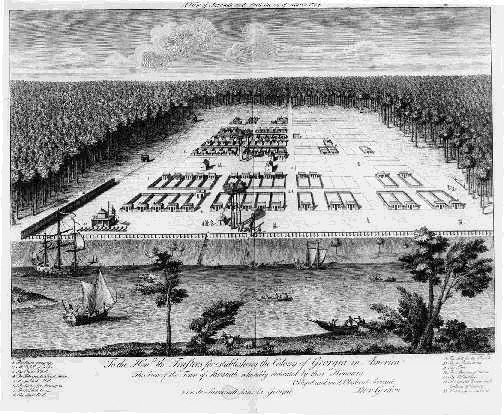History 273
Introduction to American Environmental History
University of Oregon
Spring 2003 Course Syllabus

Monday & Wednesday,10:00-11:20, 207 Chapman.
CRN 34945
Matthew Dennis, Department of History, 357 McKenzie Hall
mjdennis@darkwing.uoregon.edu
Office Hours: M, W, 11:30-12:30.
Introduction
This course will introduce students to the dynamic field of
environmental history, presenting essential concepts, concerns, and
methods in the context of American history. Units will address
environmental issues in vastly different historical settings, ranging
from the Pre-Columbian world to the modern, industrial United States.
Because of the breadth of its focus, the course complements and
extends both United State history (HIST 201-3) and world history
(HIST 120-2), and helps prepare students for advanced work in history
courses across the history department curriculum, as well as in
Environmental Studies.
Within the last few decades, environmental history has emerged as
an important sub-field. Though it is defined variously by
practitioners, at base it studies the relationship between humans and
their physical environments, understanding such relationships as
"dialogues" between societies and the material (including the
"natural") circumstances of their existence. Some environmental
historians emphasize culture and intellectual themes, exploring the
ways that people have understood and represented the natural world
and shaped it in culturally specific ways. Others stress the
essential economic foundations of environmental relationships,
focusing on the need to procure subsistence, comfort, and wealth and
the implications that such production has on physical and natural
environments. Still others have cast attention on the politics and
policy of humans' relationships with their environments, and how
social and political life--situated in landscapes--is often the
object of negotiation and struggle. Finally, others have seen
environmental history as the study of ecology, with people considered
as essential (if sometimes disturbing) elements within nature.
Students will be acquainted with these various approaches and the
implications of different sorts of environmental history, while
situating their learning in the study of American history.
Course Format and Assignments
The course will combine lecture with discussion, often weaving
the two together to make class sessions interactive. Lectures will
generally build upon--not simply recapitulate--readings. Students are
responsible for completing reading and written assignments by the
time indicated on the syllabus. These assignments will often provide
the basis for class activity; students are expected to attend all
class meetings and participate actively. Students must complete all
assignments in order to pass the course. There will be three exams,
as well as occasional short homework assignments and quizzes.
Academic integrity is important. I will hold all students to the
University of Oregon "Standards of Conduct." Plagiarism will not be
tolerated; all work must by your own, written for this class.
Required Course Readings
Carolyn Merchant, Major Problems in American Environmental
History (1993).
Ted Steinberg, Down to Earth: Nature's Role in American
History (2002).
Richard White, The Organic Machine: The Remaking of the Columbia
River (1995).
Books are available at the University of Oregon Bookstore.
Additional primary source readings may be made available on the web.
Check the course website regularly.
Lecture and Reading Schedule
Week 1 (March 31-April 2): Introduction; What is
Environmental History?
- Introduction; Varieties and Questions of Environmental History
(M).
- Colonialism: History and Environmental Impact (W)--Reading:
Major Problems, 1-22, 32-63; Steinberg, Down to
Earth, ix-xii, 3-7.
Week 2 (April 7-9): Colonialism and Ecological
Revolution.
- American Colonial Contests as Environmental History
(M)--Reading: Major Problems, 65-77; 94-109; Steinberg,
11-38.
- "Improving Nature" (W)--Reading: Major Problems,
133-44, 148-63; Steinberg, 39-51.
- Discussion
Questions.
Week 3 (April 14-16): Agriculture and
Extraction.
- Commodity Production, Slavery, and Market Revolution
(M)--Reading: Major Problems, 209-18; Steinberg, 55-88;
99-115.
- Expansion, the West, and Capitalist Integration (W)--Reading:
Steinberg, 116-37, 175-89; Major Problems, 292-304,
314-23.
Week 4 (April 21-23):
Industrialization.
- Beginnings of Industrialism in New England and Beyond
(M)--Reading: Major Problems, 189-98.
- Tuesday April 22: Earth Day.
- Exam 1, Wednesday April 23.
Week 5 (April 28-30): Urbanization.
- American Cities in the Age of Industry (M)--Reading:
Steinberg, 157-72; Major Problems, 414-26.
- Growth, Spread, Sprawl (W)--Reading: Steinberg, 175-225;
Major Problems, 426-42; 383-85.
Week 6 (May 5-7): Aesthetics and
Ideology.
- Nature and Nationalism (M)--Reading: Major Problems,
170-207, 250-51, 295. Questions
on Thoreau.
- Wilderness, Garden, Park (W)--Reading: Major Problems,
390-412.
Week 7 (May 12-14): Conservation and
Preservation.
- Conservation and Preservation (M)--Reading: Major
Problems, 338-66, 387-89; Steinberg, 138-56.
- Exam 2, Wednesday, May 14.
Week 8 (May 19-21): Ecology and
Environmentalism.
- Emergence of Ecology (M)--Reading: Major Problems,
444-83.
- Emergence of Modern Environmental Movement (W)--Reading:
Major Problems, 484-520; Steinberg, 226-38.
Week 9 (May 26-28): Environmental Politics,
National and Global.
- Monday May 26: Memorial Day Holiday.
- Contemporary Environmental Politics (W)--Reading: Major
Problems, 523-46; Steinberg, 239-85.
Week 10 (June 2-4): Columbia River Case
Study.
- Environmental History of the Oregon Country (M)--Reading:
Organic Machine, ix-xi, 1-29.
- Remaking the Columbia River (W)--Reading: Organic
Machine, 30-113.
Finals Week: Exam 3, Tuesday, June 10, 10:15.

